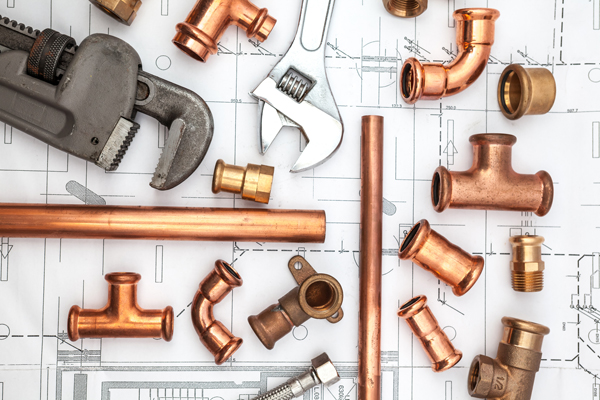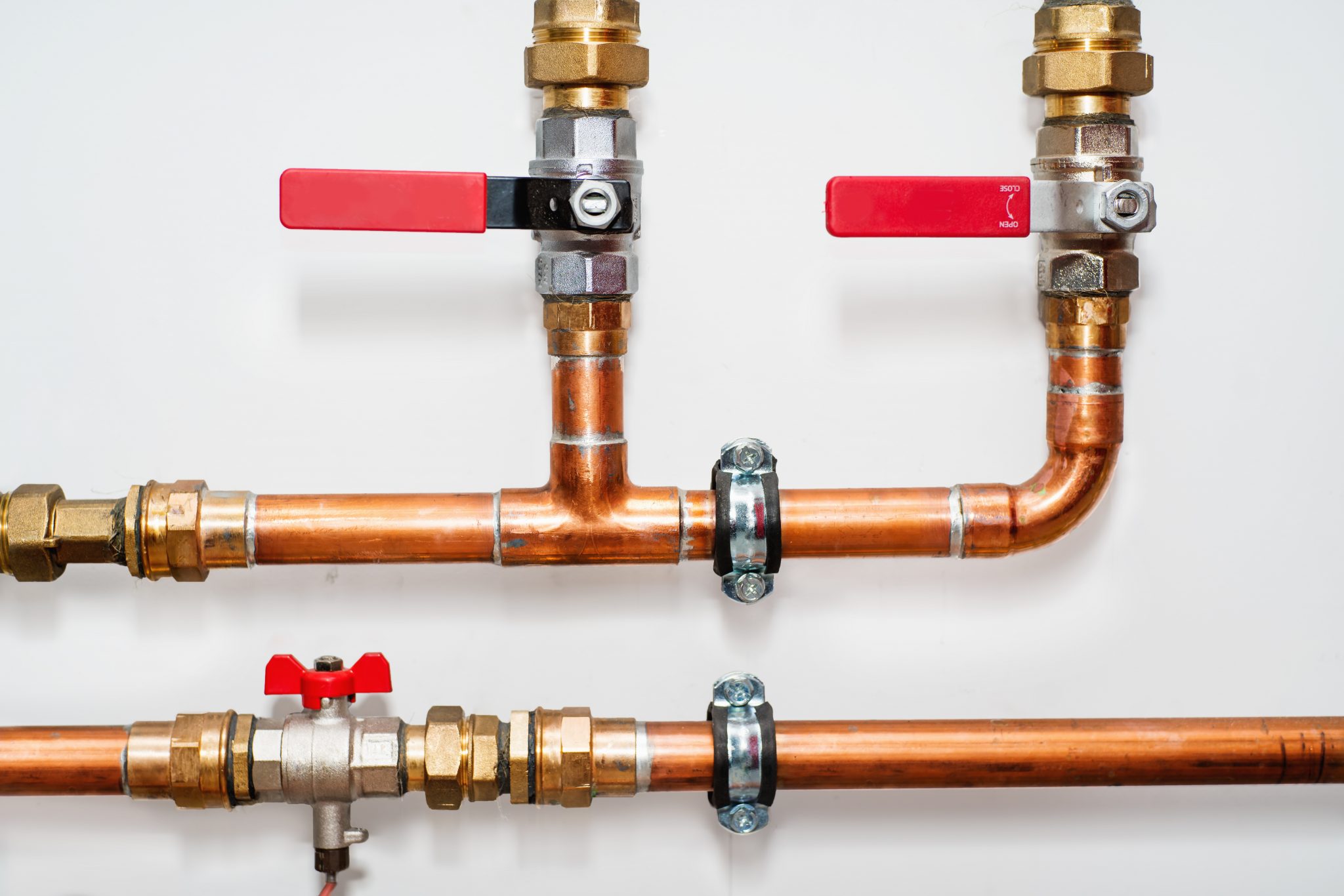Houston Repipe Specialists specialize in reliable repiping
Why Buying Repiping Providers Is Necessary for Your Home's Plumbing Health and wellness
Repiping solutions play a necessary role in preserving a home's pipes health. In time, pipelines can corrode, leakage, or become blocked, bring about prospective risks and ineffectiveness. House owners commonly forget the indications of degrading pipes, which can cause considerable damage. Comprehending the requirement for repiping is essential. What aspects should homeowners think about before making this financial investment? The solutions might stun you.
Understanding the Relevance of Repiping
While numerous house owners might forget the value of repiping, it plays a vital function in preserving the general wellness of a plumbing system. Gradually, pipelines can corrode, create leakages, or come to be clogged with natural resource, leading to decreased water high quality and flow stress. Repiping addresses these concerns by replacing old, broken pipes with new, resilient materials, making sure a trusted water supply and reducing the threat of costly repairs related to leaks and water damage. Additionally, modern-day piping materials are usually a lot more ecologically friendly and effective, contributing to reduced power costs and enhanced water preservation. Conducting a repiping job can boost a home's resale worth, making it a sensible financial investment for property owners. Eventually, acknowledging the importance of repiping permits house owners to take aggressive measures in safeguarding their pipes systems and guaranteeing a secure, functional living environment for their family members.
Usual Signs That Suggest the Requirement for Repiping
Homeowners must be alert for specific indicators that indicate the requirement for repiping, as disregarding these concerns can bring about much more serious pipes issues. One usual sign is the existence of frequent leakages, which can recommend aging or weakening pipelines. Additionally, a recognizable drop in water pressure may show blockages or corrosion within the pipes system. House owners might likewise see blemished or rustic water, signifying pipeline deterioration. Unusual water bills that are markedly greater than typical can additionally mean leakages concealed within the walls. Furthermore, the development of mold and mildew or mildew in areas near plumbing components can recommend moisture concerns coming from harmed pipelines. If the home has old galvanized piping, it might be time to think concerning repiping, as this material is prone to corrosion and corrosion. Acknowledging these indications early can aid maintain a healthy and balanced pipes system.
The Risks of Neglecting Pipes Issues
Ignoring pipes issues can result in considerable water damages, which might compromise the architectural integrity of a home. Additionally, unresolved leaks can develop an atmosphere for mold and mildew development, posturing severe carcinogen to residents. Addressing pipes troubles promptly is necessary to protect both residential property and wellness.
Water Damages Problems
When plumbing problems go unaddressed, the risk of water damages rises significantly. Leaks, drips, and cracks in pipes can bring about substantial water breach, endangering the structural honesty of a home. With time, even minor leaks can cause rot, mold and mildew development, and damages to wall surfaces and flooring, resulting in costly repairs. Water damage can additionally affect electric systems, developing unsafe conditions. Home owners commonly ignore the advancing impact of little leaks, which can bring about extensive damages otherwise without delay addressed. Overlooking plumbing concerns not just increases the likelihood of instant damages but can additionally reduce residential or commercial property value and posture lasting financial problems. Consequently, prompt repiping solutions are necessary to stop water damages and keep a healthy home environment.
Wellness Hazards Rise
Unsolved pipes concerns can bring about considerable carcinogen within a home. Contaminated water from rusty pipelines can lead and introduce unsafe bacteria to severe diseases. Mold and mildew development, usually an outcome of leakages and excess dampness, presents respiratory system threats and can activate allergies. Additionally, stationary water can attract bugs such as insects and rodents, which lug conditions that additionally endanger household health. Disregarding these pipes issues not only jeopardizes the safety of residents yet can additionally decrease building value. Attending to pipes concerns with repiping services is necessary. Prompt intervention not just safeguards wellness however likewise ensures a risk-free living atmosphere, protecting against extra substantial damages and expensive repair work down the line.
Different Kinds Of Piping Products
Piping materials are a necessary element in pipes systems, affecting sturdiness, efficiency, and overall performance. Various choices are readily available, each with distinct residential properties and applications. Copper piping is known for its durability and resistance to deterioration, making it a preferred selection for both chilly and hot water lines. PVC (polyvinyl chloride) is lightweight, cost-effective, and immune to chemical damage, largely utilized for drainpipe and air vent systems. PEX (cross-linked polyethylene) has obtained appeal as a result of its adaptability and ease of setup, permitting less joints and prospective leak points. Galvanized steel, though as soon as usual, is much less desirable today due to its susceptibility to rust and decreased water circulation over time. Each product offers unique advantages and disadvantages, making it important for home owners to talk to pipes experts to establish the most suitable choice for their details needs and problems. Picking the ideal piping material can substantially impact the effectiveness and safety and security of a pipes system.
The Repiping Refine: What to Expect
The repiping procedure begins with a detailed evaluation of the existing pipelines to determine problems and figure out the finest strategy. Following this assessment, homeowners will require to select proper substitute materials that suit their pipes needs. Finally, a summary of the installment process will certainly provide understandings into what to expect during this substantial home renovation.
Assessment of Existing Pipelines
An exact assessment of existing pipes is vital for ensuring the long-term health of a pipes system. This examination entails checking the products, age, and condition of the pipes, in addition to identifying any kind of indications of deterioration, leaks, or obstructions - Houston Repipe Company. Expert plumbing technicians frequently utilize sophisticated techniques such as video clip inspections to gain a toilet tank replacement clear view of the pipe's interior without intrusive treatments. By recognizing problem locations early, home owners can prevent further damage and costly repair work in the future. Additionally, comprehending the current state of the plumbing infrastructure help in making informed choices relating to required upgrades or repiping. Overall, a thorough analysis serves as the foundation for an effective repiping procedure, making certain that the brand-new system satisfies the home's certain requirements
Picking Replacement Materials
After assessing the existing pipelines, property owners encounter the essential decision of selecting appropriate replacement materials for their pipes system. Common options consist of copper, PVC, PEX, and CPVC, each with distinct advantages and negative aspects. Copper is understood for its toughness and resistance to deterioration, making it a resilient option. PVC is affordable and light-weight, appropriate for drain and vent lines. PEX uses adaptability and is resistant to range and chlorine, making setup simpler in tight rooms. CPVC resembles PVC however can hold up against higher temperatures. Homeowners must consider elements such as budget plan, neighborhood building regulations, and the particular requirements of their pipes system when making this decision, making certain ideal efficiency and long life for their home's plumbing framework.
Setup Process Overview
Repiping a home can be a considerable task, but comprehending the installment process aids home owners plan for what lies in advance. The process generally begins with a complete examination of the existing plumbing system to identify trouble areas. Next, an in-depth strategy is formulated, outlining the necessary products and timelines. On the installation day, experts will commonly begin by shutting down the water and draining pipes the existing pipelines. They then remove the old piping, which might entail opening walls or ceilings for access. New pipes are installed, guaranteeing they meet present plumbing codes. Finally, the system is tested for leaks, and any kind of openings are repaired. Home owners can expect a tidy and effective process, lessening disruption to their lives.
Long-Term Benefits of Repiping Your Home
While numerous property owners might ignore the significance of upgrading their plumbing, the long-term benefits of repiping a home can significantly boost both its value and performance. One of the main benefits is boosted water top quality. Older pipes may nurture impurities and corrosion, while brand-new piping warranties safe and clean water shipment. Additionally, repiping can result in raised water pressure, making everyday tasks more effective.

Just how to Choose the Right Plumbing Service for Repiping
How can house owners guarantee they select the most effective pipes solution for repiping? Initially, they must investigate local pipes business, focusing on those that concentrate on repiping services. Checking out on-line testimonials and testimonies can offer understandings into the quality of solution used. It's necessary to check for proper licensing and insurance policy, guaranteeing the picked company adhere to neighborhood guidelines
Property owners ought to also request in-depth quotes from multiple companies to compare prices and solutions supplied. Involving directly with possible plumbing professionals can help evaluate their experience, communication abilities, and readiness to respond to inquiries. Additionally, requesting recommendations from previous clients can validate a firm's reliability and workmanship.
Property owners need to think about the company's guarantee plans on materials and labor, as this can show their dedication to top quality. By complying with these standards, property owners can make an educated choice, protecting their pipes health and wellness with reliable repiping services.
Frequently Asked Inquiries
How much time Does a Normal Repiping Job Require To Complete?
A typical repiping task typically takes in between one to five days to complete, relying on the size of the home and intricacy of the pipes system. Proper preparation and specialist know-how can influence overall period considerably.
Will Repiping Boost My Home's Resale Worth?
Repiping often boosts a home's resale worth, as prospective buyers appreciate updated plumbing systems. This enhancement reduces potential pipes concerns, making the residential or commercial property much more eye-catching and possibly justifying a greater asking cost throughout sale negotiations.
Can I Remain In My Home During Repiping?
Throughout repiping, remaining in the home is typically feasible, yet it may depend on the degree of the job. Home owners should prepare for momentary disruptions and speak with contractors for details setups and safety considerations.
What Is the Average Expense of Repiping a Home?
The typical expense of repiping a home usually ranges from $4,000 to $15,000, relying on variables such as the size of the residence, products made use of, and labor prices connected with the plumbing job. - Houston Repipe Specialists
Do I Need a Permit for Repiping Solutions?
A license high octane drain pipe is usually needed for repiping services, as it assures compliance with regional building regulations and policies. Property owners ought to consult their regional authority or a certified plumber to identify certain allowing needs for their location.
